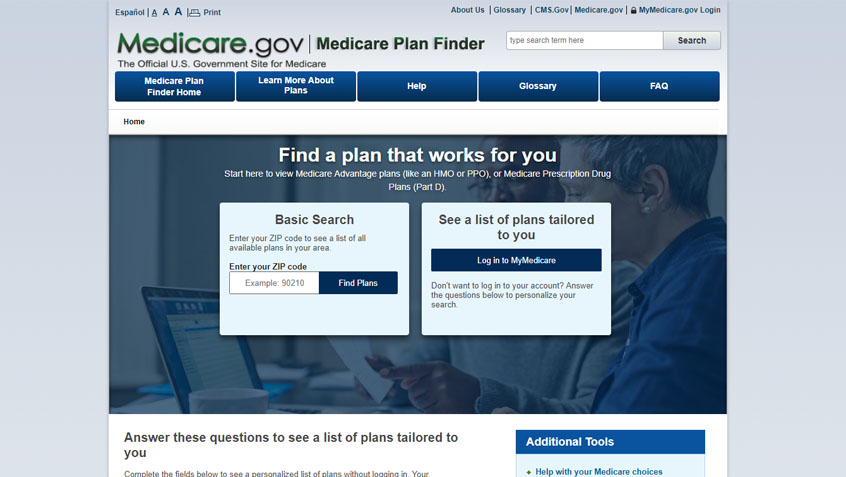Join Us Live for a Discussion on Medicare, Democracy, and the Future of Health Care
GAO Report Finds Medicare Plan Finder Needs Significant Improvements

Medicare Plan Finder (MPF) is a primary way for people with Medicare to understand and compare their coverage choices. MPF should allow beneficiaries, caregivers, and unbiased counselors to find the coverage that best serves the needs of the individual. A new report from the U.S. Government Accountability Office (GAO) agrees with previous research on MPF that the tool has significant problems that interfere with its usefulness.
GAO is an independent, nonpartisan agency that examines how taxpayer dollars are spent and provides Congress and federal agencies with objective, reliable information. In response to a request from Congress, GAO conducted a review of MPF as a resource for beneficiaries and to discover both its usability and the completeness of its information.
As part of the review, GAO surveyed multiple stakeholders, including advocacy organizations like Medicare Rights and State Health Insurance Assistance Program (SHIP) directors. SHIPs provide unbiased one-on-one counseling to Medicare beneficiaries and their families to help them find the right coverage for their circumstances.
During its review, GAO found that MPF is difficult for people with Medicare to use, in part due to its overly complex navigation and abundance of health insurance industry jargon that many beneficiaries do not understand. The report also notes that the information supplied via the tool is incomplete. For example, there is no way for beneficiaries to compare prices between Original Medicare—with or without a Medigap supplemental plan and/or a Part D drug plan—and a Medicare Advantage plan; and MPF also does not allow users to search for Medicare Advantage plans by participating providers, so there is little ability to see which plans include which doctors in their networks—a priority for many people with Medicare who want to keep their current providers.
The SHIP directors GAO surveyed reported that it is challenging for beneficiaries to find information in MPF and that even trained SHIP counselors can struggle at times. This finding is in line with other research from the National Council on Aging and the Clear Choices Campaign from 2018 that reviewed MPF’s ease-of-use and concluded “the site is overwhelming, information is poorly presented, and the user design is potentially misleading—all of which confuses beneficiaries and can contribute to many making poor plan selections.”
Medicare Rights has long encouraged improvements to MPF. As GAO notes in their report, a redesign of MPF is underway that may mitigate some of the problems beneficiaries currently have. However, the federal government is also increasing the burden on people with Medicare by adding new complexities to the Medicare program, making decision-making harder than ever. Without solid information, tools, and assistance, people with Medicare cannot make the best choices for their individual circumstances. MPF must be robust, unbiased, and user friendly to ensure beneficiaries have access to the information they need.
Show Comments
We welcome thoughtful, respectful discussion on our website. To maintain a safe and constructive environment, comments that include profanity or violent, threatening language will be hidden. We may ban commentors who repeatedly cross these guidelines.
Help Us Protect & Strengthen Medicare
Donate today and make a lasting impact
More than 67 million people rely on Medicare—but many still face barriers to the care they need. With your support, we provide free, unbiased help to people navigating Medicare and work across the country with federal and state advocates to protect Medicare’s future and address the needs of those it serves.
The Latest
Most Read
Add Medicare to Your Inbox
Sign up to receive Medicare news, policy developments, and other useful updates from the Medicare Rights.
View this profile on InstagramMedicare Rights Center (@medicarerights) • Instagram photos and videos









